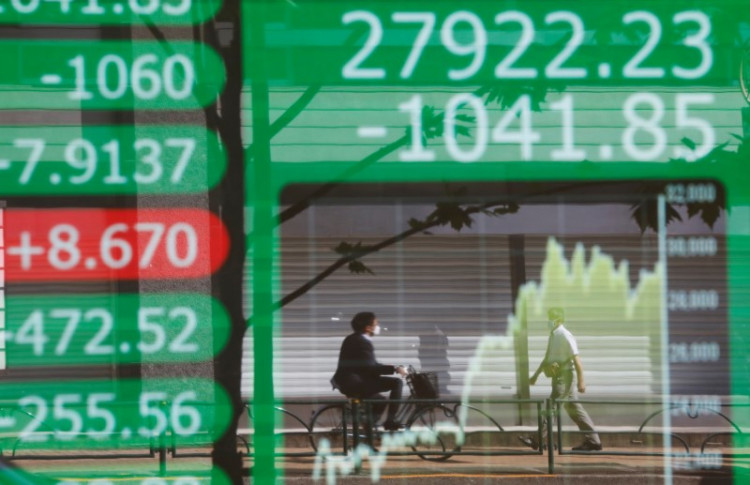European bank stocks plunged Friday, extending a global market rout triggered by U.S. President Donald Trump's aggressive tariff escalation, as investors priced in deepening risks of recession and slashed expectations for interest rate hikes across major economies.
The European banking index dropped 9.28% by midday London time, with top lenders Deutsche Bank, Intesa Sanpaolo, Banco Santander and UniCredit losing between 9% and 11%. UBS fell 8% in Switzerland, which now faces a 31% U.S. tariff under Trump's new policy. In Japan, banking shares also tumbled, completing what investors described as a brutal repricing across the global financial sector.
The damage to banks reflects a double blow: worsening prospects for global economic growth and the increasing likelihood of lower interest rates, which typically compress net interest margins and hurt profitability. "We have a massive destruction on wealth going on in markets, with the exception of fixed income - which is having a massive rally," said Chris Scicluna, head of economic research at Daiwa Capital Markets. "Lower bond yields and flatter yield curves are not what banks want to be seeing."
President Trump's tariff package, announced Wednesday, includes a flat 10% duty on all imports and reciprocal tariffs on key trading partners, including a 20% levy on European Union goods. The move has prompted sharp retaliatory rhetoric and heightened concerns that U.S. protectionist policy may trigger a global downturn.
Allianz Chief Economic Advisor Mohamed El-Erian warned that the U.S. economy is now at heightened risk. "I don't think [a U.S. recession] is inevitable because the structure of the economy is so strong, but the risk has become uncomfortably high," he told CNBC from the Ambrosetti Forum in Cernobbio, Italy.
Bank of America strategists noted that European banks were among the "least advanced in pricing global macro trouble," suggesting that the current selloff may only be the beginning. Deutsche Bank forecast eurozone GDP could drop 0.4 to 0.8 percentage points in response to the tariffs, a larger contraction than previously modeled for 2025-2026.
In Poland, officials estimated the tariffs could shave 0.4% off GDP, amounting to a loss of 10 billion zlotys ($2.6 billion). Meanwhile, the European Commission is preparing a package of economic relief proposals as Brussels readies countermeasures. EU Commission President Ursula von der Leyen stated the bloc is "preparing for further countermeasures, to protect our interests and our businesses if negotiations fail."
Japanese banks also bore the brunt of investor anxiety. "The trade war has killed Japanese reflation," said Kyle Rodda, senior market analyst at Capital.com in Melbourne. "Japanese yields have tumbled and the curve has flattened quite a bit, hurting the prospect for bank profits."
Fred Neumann, chief Asia economist at HSBC, said Japan's monetary policy path has shifted. "The hurdle for rate hikes by Japan's central bank have certainly risen on the back of tariff hikes by the U.S.," he said, though he noted the Bank of Japan should not yet be ruled out due to persistent price pressures.
Michael Makdad, senior equity analyst at Morningstar, added, "There is a bit of a binary scenario: either U.S. tariffs stay as announced, or the reality turns out to be not so extreme. In the former scenario, Japanese bank shares are not currently undervalued."
While rate-sensitive sectors such as real estate and construction in Asia are seen as safer bets amid the turmoil, bank stocks across Europe and Asia remain under pressure. "Banks in Japan are caught in the crossfire of waning rate hike expectations coinciding with the market coming to terms with increased chances of a global recession," said Jon Withaar, senior portfolio manager at Pictet Asset Management.






